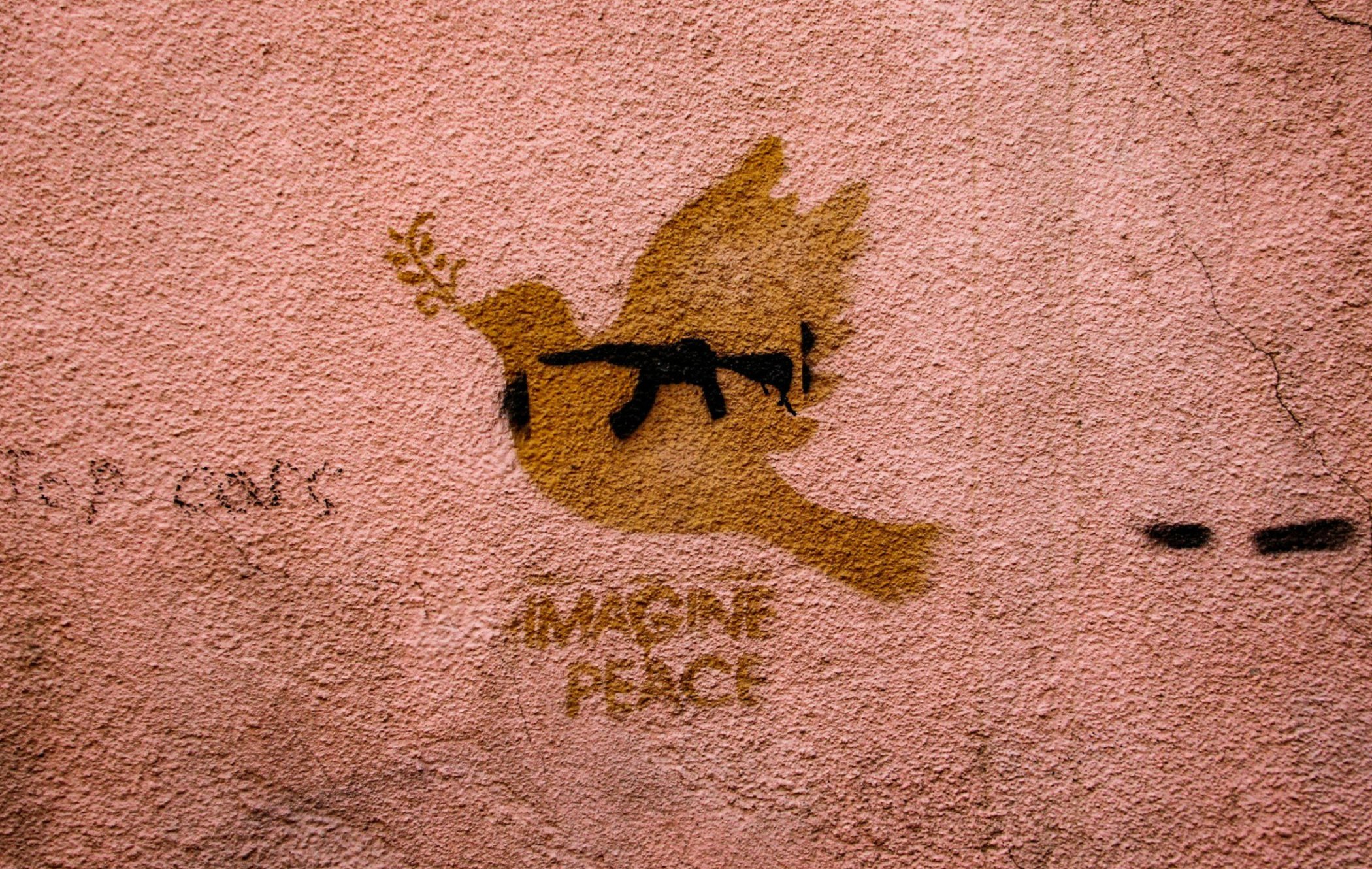Why Your Church Should Start Training for Peacebuilding Now
Recently, I had the honor of being invited by the general secretary of the European Evangelical Alliance (EEA) to speak at a round table meeting of various EEA network and ministry leaders. They had asked me to speak about how peacebuilding can provide
clarity for Christian work, ministry, purpose, or mission;
coherence to various types of church work, and
hope for Christians in our lives, work, and how we communicate about our faith.
I wanted to share some reflections from our time together here, because peacebuilding is desperately needed in a holistic way, not simply as an additional activity in your personal life or program for your church, but as an organizing paradigm or worldview for how Christians understand God’s mission and the Church’s vocation. The need for each of us and for the whole Church to embrace peacebuilding is urgent, so we must each get started now.
Clarity of Purpose
Most Christians are aware of a massive faith crisis that is playing out within Christianity, especially though not exclusively among younger generations. (This is not just true among Christians. It’s also the case for people of many other faiths and ideologies as globalism and social media has made it easier to get to know “the other,” sparking new questions, uncertainties, and doubts about the religious, ethnic, or ideological narratives and beliefs that we were taught, grew up with, or inherited.) This phenomenon is sometimes called “deconstruction,” because re-examining our beliefs often results in changes in beliefs and sometimes even a loss of faith. But this reexamination also typically catalyzes a deepening and maturation of faith in light of the complexities of our lives and world.
Among Christians, though, there is not just a faith crisis as we re-imagine, renovate, and reconstruct our faith; there is an ongoing and massive crisis of Christian purpose (i.e. vocation, mission, etc.). Christian mission has been and is so often associated with a Christian supremacist or imperialistic posture (i.e. we have all the spiritual goods to dispense to others). How, then, how can we faithfully re-imagine more Christlike postures, practices, and goals for our Christian vocation?
Peace-oriented theology and peacebuilding do just that. Practices of peacebuilding also take into account challenging themes like truth, mercy, justice, and forgiveness. For a world that is suspicious and tired of authoritarian expressions of faith, and rightly so, peacebuilding practices teach us to live with humility and flexibility as we self-interrogate, acknowledge our own blind spots, and discern with those around us about how we can move together toward God’s shalom. As I have heard from many Christians experiencing the pain of deconstruction, nothing helped them regain a clarity of purpose about what God is doing in the world and how we’re called to follow Jesus like peace-oriented theology and peacebuilding.
Coherence in Faith and Practice
A sense of disjointedness in various aspects of faith and practice is common among many Christians. That is, we have a whole set of beliefs that we are supposed to hold on to and a whole range of various practices that are good for Christians to do: spiritual disciplines like prayer and Bible reading, being good neighbors, helping those in need, proclaiming the good news, working for justice, etc. However, we feel like we must do so many important things that we become pulled in a variety of directions without a sense of the unified whole that all our work, disciplines, and relationships should be leading toward.
Peace theology’s articulation and understanding of shalom can help us remember the relationship between what we believe and what we do. Shalom is the positive, just peace that is characterized by flourishing relationships between all things: individuals and God, their own self, others, and the creation. While shalom is certainly personal, shalom is also collective and only exists when group relationships are flourishing and justice is embedded in our systems of governance (cf. Mic 6:8; Am 5:24; Ps 82:3; Is 1:17).
All our spiritual disciplines including Bible reading, prayer practices, silence and meditation, journaling, singing, and many more are intended for the purpose of personal shalom, with God and our own self or identity, so that we can experience the love of God and God’s shalom or wholeness in our own lives. Those personal disciplines and spiritual formation then propel us out into our communities and cities to follow Jesus in his shalom-building mission (of course, healing and wholeness in our communal relationships also impacts our own sense of personal shalom). All Christian ministry and work – whether that is to engage in humanitarian and aid work, dialogue and conversations across faith or ideological differences, counseling and social services, education and formation work, justice and advocacy, and much more – is all for the purpose of healing relationships and reconciling people with God, self, one another, and creation towards the flourishing, just peace of God’s shalom.
The coherence that peace-oriented theology provides between what we believe and what we do (faith and practice) can help us begin to identify ways that various Christian work can overlap with the work of others, both other Christians and non-Christians. With a peacebuilding framework, we can identify common goals to work toward individual and communal healing with a variety of partners toward the ideal of God’s shalom.
Hope in the Midst of Chaos and Conflict
When rapid societal changes, sickness, and war have destabilized all our social norms and expectations, peace-oriented theology helps us see how God has always been and will always be working in the midst of chaos and conflict toward the flourishing of shalom. Peace-oriented theology is not new; rather, it comes from a long theological tradition that has withstood the test of time. Faithful communities and individuals have caught a glimpse of God’s consistent shalom-building work through the entire biblical story until the present. As Rev. Dr. Martin Luther King, Jr. said, “The arc of the moral universe is long, but it bends toward justice.” Peace-oriented theology confidently asserts the same: The arc of the biblical story – indeed, of God’s work in the world – is long, but it bends toward shalom. God is working for and toward shalom, so in spite of all the chaos, conflict, and brokenness within and around us, we can remember our hope: this is not just our work; this is God’s very own mission.
We Must Start Training for Peacebuilding Now
God’s mission is to heal all that is broken in the world in order to establish flourishing relationships and just peace: shalom. We are called to follow Jesus as part of God’s mission to establish shalom. This is not just some additional program, but rather, this informs the life and work of the whole Church, impacting how we pray, preach, disciple, and work.
Although it is best to train for peacebuilding before conflict arrives, conflicts are already present in our personal lives, churches, and society. The time to begin training for peacebuilding is now.
This requires a deeper exploration and examination of peace-oriented theology so that our churches can wrestle with all the theological questions that accompany peacebuilding work. This requires ongoing skills training to learn how we might disagree well, identify common goals, practice nonviolent communication, partner in healing work individually and communally, and much more. Most of us are not naturally gifted or inclined to deal with personal or communal conflicts as healers, and these skills must and can be learned.
Peace-oriented theology and peacebuilding provide a biblical worldview that brings new clarity, coherence, and hope to what it means to be the Church today. Prioritizing peacebuilding does not mean including some small add-on program to your church work, but a concentrated shift in priorities to realign ourselves with the very mission of God. And this is urgent. It’s time to get started centering peace-oriented theology and peacebuilding skills training in our churches and Christian formation so that we can learn to partner as peacebuilders to bless and heal our communities.




